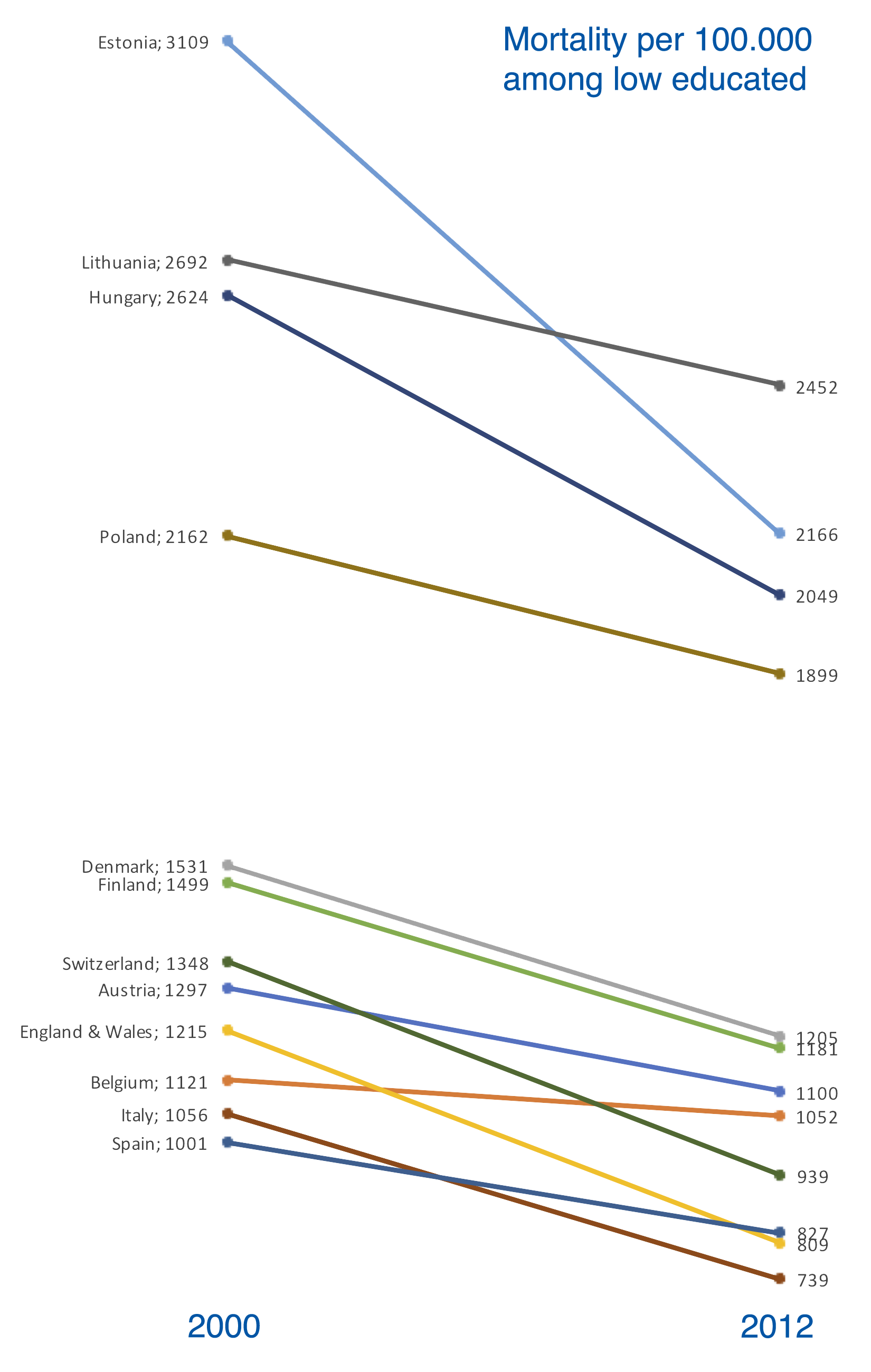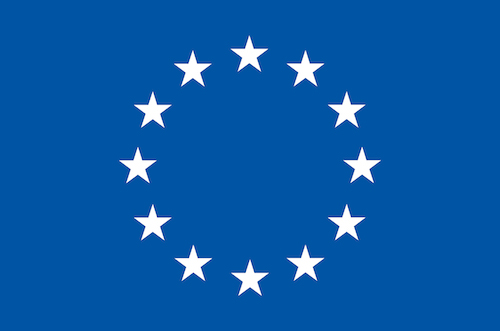Europe has been more resilient than US to the financial crisis, a study on mortality found
- Mortality trends in Europe have been decreasing in recent years, with no interruptions due to the economic crisis
- In contrast to the United States, the health of low-educated people in Europe has improved in recent years
- Several Eastern Europe countries experienced a favourable reversal of the mortality trend among the low educated
Milan/Rotterdam, June 4th2018– European countries have been more successful than US in avoiding an aggravation of health inequalities due to the 2008 financial crisis. This is the conclusion of a study published on PNAS by LIFEPATH, a project funded by the European Commission, which investigates the biological pathways underlying social differences in healthy ageing.

Health inequalities between different socioeconomic groups are a highly persistent phenomenon, despite having been the focus of public health policy in many countries. Since the early 2000s, the United States has experienced a rise in the so-called “deaths of despair” among low educated middle-aged white Americans, as a result of rising rates of suicide and poisonings, partly due to an epidemic of misuse of opioid painkiller drugs. The multidisciplinary team of LIFEPATH experts tried to see if similar trends occurred also in Europe.
The researchers, led by Johan Mackenbach, professor of Public Health at the Erasmus University Medical Center in Rotterdam, collected data on mortality from 1980 to 2014 for 17 countries (covering 9.8 million deaths), and data on self-reported morbidity – which is a condition of disease, disability, or poor health – from 2002 to 2014 for 27 countries (covering 350,000 survey respondents). And they found that, in contrast to the United States, and despite the occurrence of an economic crisis, health of the low educated in Europe has improved in recent years, while health inequalities have sometimes narrowed.
«As the negative consequences of economic crises are likely to strike harder on the most disadvantaged, it is important to assess the health effects by socioeconomic group», said Mackenbach. «Our study shows that, despite the recession, most European countries have experienced an improvement of the health of the low educated in recent years. In Eastern Europe, this even represents a reversal as compared to previous decades».
In most Western European countries, mortality has steadily declined among both the low and the high educated without visible signs of a trend interruption due to the 2008 financial crisis, despite the very real increases in unemployment and poverty, often accompanied by cuts to social security and health services. «We think that the underlying trends were too powerful to be derailed, and the short-term effects of the crisis on people’s living conditions were too weak and too well-buffered to be translated into wide-spread health risks», said Paolo Vineis, professor at the Imperial College of London and leader of the LIFEPATH project.
Also, the effects of the economic crisis on people’s health risks were probably mixed, because some risks, such as the stress of being laid off or having financial debts, increased, contributing to a rise of the suicide rate, whereas other risks, such as the risk of dying in a car crash or of excessive drinking, declined.
In several Eastern European countries, particularly Hungary, Lithuania and Estonia, a trend reversal has occurred: after a dramatic increase due to the political and economic transformations following the collapse of the Soviet Union, mortality has started to decline among the low educated. These changes have been attributed to a combination of long-term declines in smoking, improvements in health care, dietary changes, road traffic safety measures and alcohol control policies. The massive investments in these countries’ infrastructure, supported by the European Commission, may also have helped. «This is probably our most remarkable finding, as such an inversion has not been reported before», concluded Mackenbach. «It seems that mortality-lowering policies have finally also reached the low educated. This means that inequalities by socioeconomic position need to be monitored when new health strategies are being implemented.
Table. Mortality per 100.000 among low educated
| ca. 1990 | ca. 2000 | ca. 2012 | |
|---|---|---|---|
| Austria | 1645 | 1297 | 1100 |
| Belgium | 1397 | 1121 | 1052 |
| Denmark | N/A | 1531 | 1205 |
| England & Wales | 1545 | 1215 | 809 |
| Estonia | 2523 | 3109 | 2166 |
| Finland | 1820 | 1499 | 1181 |
| Hungary | 2651 | 2624 | 2049 |
| Italy | 1339 | 1056 | 739 |
| Lithuania | N/A | 2692 | 2452 |
| Poland | N/A | 2162 | 1899 |
| Spain | 1163 | 1001 | 827 |
| Switzerland | 1488 | 1348 | 939 |

 Lifepath
Lifepath